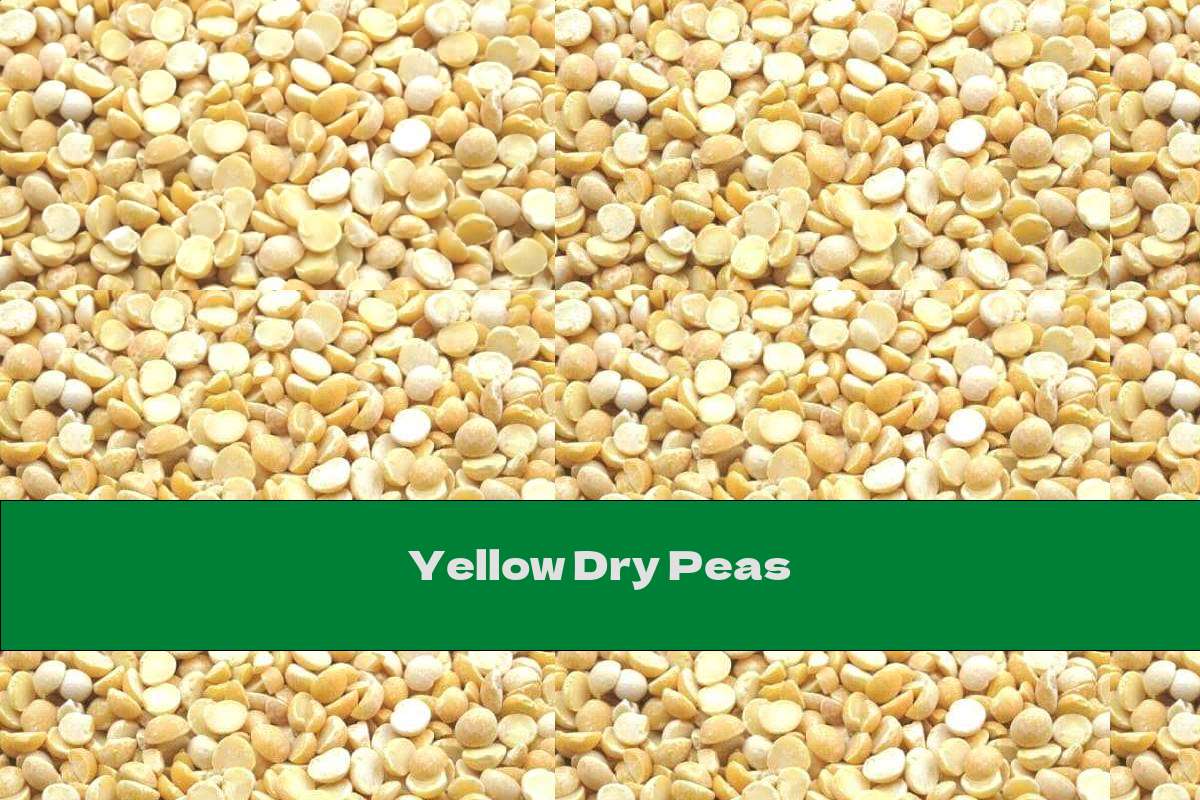Yellow Dry Peas
 Author: Alexander Bruni
Time for reading: ~1
minutes
Last Updated:
August 08, 2022
Author: Alexander Bruni
Time for reading: ~1
minutes
Last Updated:
August 08, 2022

CHAPTERS (Table Of Contents)
In this article, learn more about Yellow Dry Peas. Yellow dry peas.
Yellow peas are from the lentil and bean family. What sets it apart from them is the way it is prepared. Once ripe, the pea pods are picked, dried and then peeled to remove the spherical peas.
Basic nutritional values
Yellow dried peas offer much more fiber than other staple foods. It is rich in energy-intensive complex (complex) carbohydrates. 1/2 teaspoon of crushed dried peas contains 144 calories, of which 10 grams of protein, less than 1 gram of fat, 26 grams of carbohydrates, 10 grams of fiber, 2 milligrams of sodium and does not contain cholesterol. Yellow peas are a good source of B vitamins and several minerals that are especially important for human health.
MacronutrientsYellow peas contain two essential nutrients - proteins and carbohydrates, which provide between 10 and 20 percent of the recommended daily allowance of these substances. Although it does not contain all the important amino acids necessary for human health, such as those in animal proteins, it is particularly rich in tryptophan. Tryptophan is needed for the production of neurotransmitters or serotonin, which regulates mood, appetite and sleep.
VitaminsYellow peas are especially rich in vitamin B1 (thiamine), providing 0.18 milligrams per serving of 1/2 tea cup, ie. 12% of the required daily amount. It also contains a large percentage of folate - 64 milligrams, which is 12% of the recommended daily amount. Thiamine is necessary for the proper function of the nervous system, and folate contributes to heart health, improves immune function, prevents congenital anomalies and forms red blood cells.
MineralsIt contains potassium and phosphorus, and each 1/2 cup of yellow peas provides about 10% of the daily intake. Phosphorus, along with potassium, is involved in building healthy bones. Potassium helps regulate heart rate and blood pressure and promotes healthy arterial circulation. Yellow peas also contain molybdenum and manganese, which are involved in metabolic reactions in the body.
FiberHalf a cup of this product contains 7 grams of insoluble fiber and 3 grams of viscose fiber. Both types are very important for optimal health. Insoluble fiber promotes healthy digestion and regular bowel movements. Viscose fibers help regulate weight, give a feeling of satiety, reduce blood cholesterol levels and stabilize blood sugar levels.
- Green peas
- Bean cultures
- Pea flour
- Peas
Related Articles
- The Role of Methyl Yellow in Nutrition: Health Effects and Regulatory Guidelines
- The Power of Green Peas: Nutritional Benefits and Recipes
- The Role of Methyl Yellow in Nutrition: Health Risks, Regulations, and Alternatives
- The Role of E114 (Sunset Yellow) in Nutrition: Uses, Health Concerns, and Alternatives
- The Ultimate Guide to Yellow Maize Nutrition: Benefits, Recipes, and More